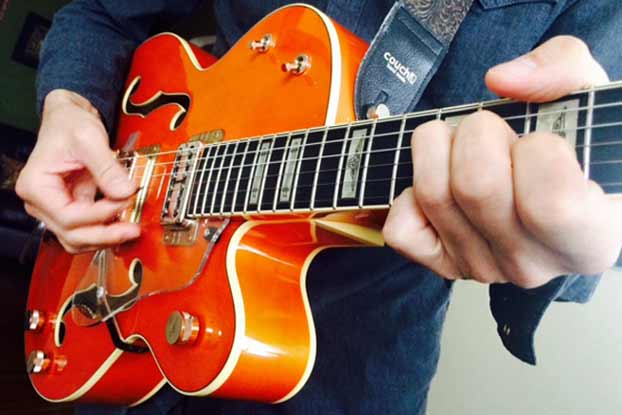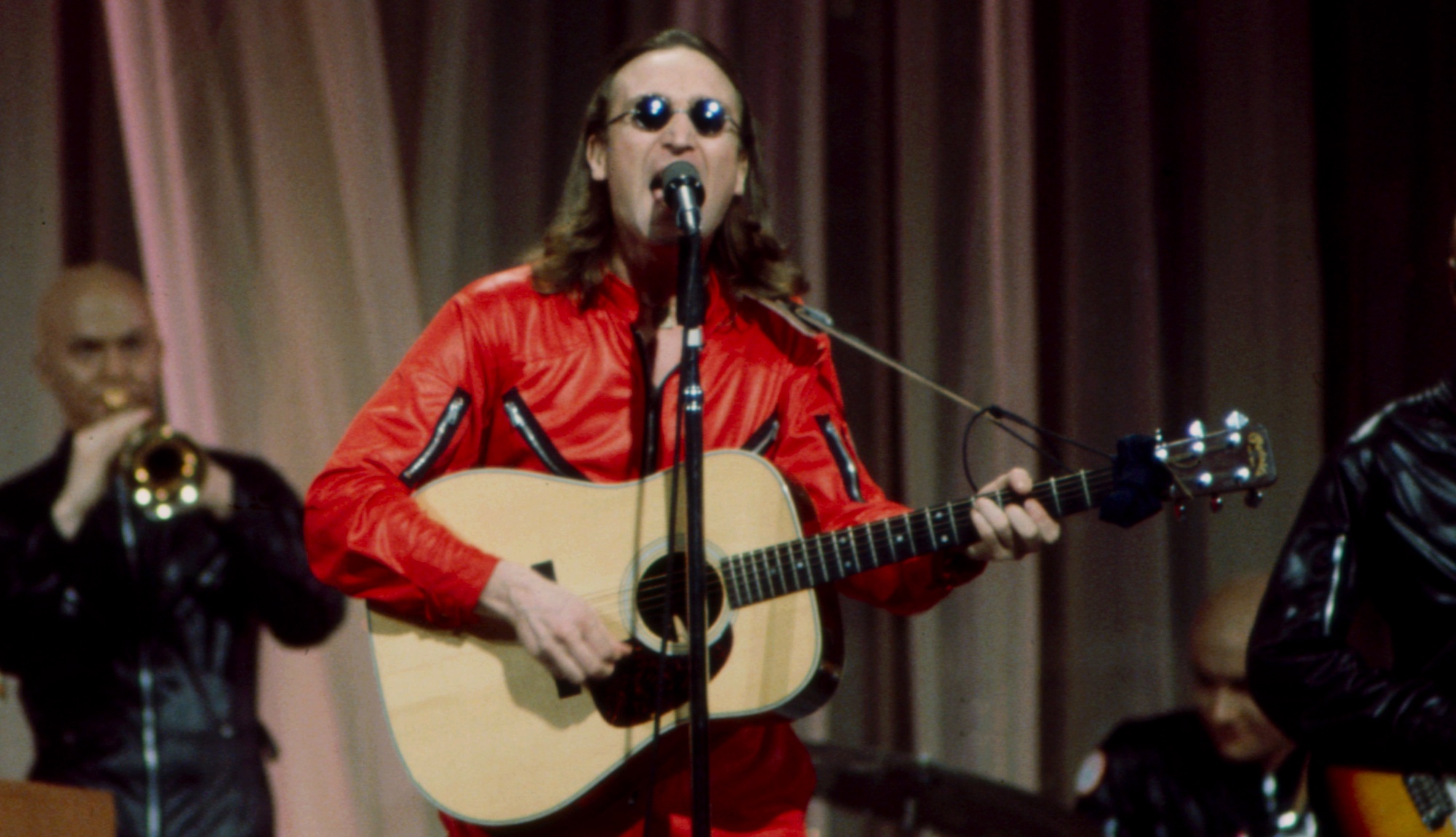Improve Your Guitar Playing by Giving Your Notes Room to Breathe
All the latest guitar news, interviews, lessons, reviews, deals and more, direct to your inbox!
You are now subscribed
Your newsletter sign-up was successful

Hi, gang!
Let's talk about space. Not studio recording space. Sonic space. Your guitar part. We all want to be heard, to stand out, to express something with a guitar.
But instead of defining ourselves clearly and concisely, we muddy up our own message, our own voice. Let's see if you are as guilty of this as I am.
Playing sessions means making the other party happy. In most cases, it is a producer. Producers don't necessarily care about your legacy as a guitarist. They care about putting out the finest product they can. And that means satisfying a market.
So when they tell me what to do, I do it. If all goes well and I hear something the producer or artist hasn't, I'll suggest it. If it works, better for me. However, a trend started a long time ago...(spinning-hourglass visual...)
This trend was to double almost everything. Rhythm guitar on the left and right. Double the electric rhythms with acoustic guitars on the left and right. Double the acoustic guitars with high-strung acoustics on the left and right. Add some really heavy guitars on the chorus on the left and right. Made a big juicy sound.
Add some color guitars, tremolo, chicken pickin' tick-tock guitars. Single strums. Then a solo, often harmonized and written out. Often the producer wasn't even a guitarist. Many times the solos I was asked to play were lame. I didn't even want my name on some recordings. That stuff could kill a reputation fast. And it almost did years ago. Anyway, as a budding arranger/producer in my own right, I learned this style and did OK.
All the latest guitar news, interviews, lessons, reviews, deals and more, direct to your inbox!
Move forward to today (hourglass visual spinning in reverse). I started noticing fatigue setting in. Listening to music. I was getting tired of listening to most music. And especially guitarists. And you know guitarists today are the finest there have ever been technically and sonically! At least I think so. I love every one of them. I love the new gear. New styles and techniques. Yet...fatigue. Boredom. No connection to what I was hearing.
I realized it wasn't today's music or musicians. It was the production and the "more is better" philosophy.
More tracks. I use at least 40 to 60 tracks on a basic production. More mics and more amps and more pedals and more guitars. On every song. Yet where are the guys the guitar world in general consider icons today? Where are the Jimi's, Eddie's and Eric's? Maybe, and I believe this to be true, they are here. In the millions. But they haven't realized how to connect to the listener!
I believe most arrangements today lack creativity. And you do not have to be eccentric in your style to be creative. You can choose to play in any style and do some real thought. Do you need more than ONE guitar on any song? Think about how one single guitar, played end to end, solo and all, will focus and direct you into the ears of anyone listening.
No clutter. Just you, your guitar and your tone playing your ass off. Heaven. Even if it is simple. Wanna talk soloing? I'm not going to say slow down or speed up. But I am going to tell you to breathe! Give the listener some time to take it in. A half second would be enough here and there. Say something. Then give it a second. Say something else, etc. (Listen to Brian Setzer with Stray Cats).
Rhythm can be defined as sound and silence. We've got the sound part down. I think we need to consider how much sound is really the right amount. Then consider the silence. Or at least the space. I believe we can better define ourselves and connect if we use less. And this holds true for everyone involved.
Vocalists. Do you need every word tuned and harmonized? See what I mean? No personal connection. It's like a machine is singing to you with many more machines saying the same thing at the same time.
Are you getting this?
Back to the icons. Maybe the connection could be made because we could actually hear their notes. Emotions. Techniques. Parts. Tone. And maybe we could hear them because their wasn't a wall of guitars sounding like the Tower of Babel confusing and cluttering up their message. They left room around them to be heard. Many also knew how to breathe.
Take a moment. Stop playing. Realize you said something. Then breathe before you say something else. It is music. We don't get paid by the note. We should get paid by how well we can place a part of ourselves into the community of players on a song. And what we do to better the song. And sometimes, often times, less is definitely more.
So the next time you are doing a recording, try this. Try to start with a tone you love. Complete and whole. Your tone. Your voice. Then figure out a part that is not merely chords and notes, but a part. A real part. Something that comes and goes. Says something. Then leave space for the listener to sink in.
Even for a second. Look for that space. Respect it. Your listeners might finally get to hear what you have to say and accept you as someone they want to hang with often. In the buds or on the stage.
Till next time!
Ron Zabrocki is a session guitarist from New York, now living in Connecticut. Says Ron: "I started playing at age 6, sight reading right off the bat. That’s how I was taught, so I just thought everyone started that way. I could sight read anything within a few years, and that helped me become a session guy later in life. I took lessons from anyone I could find and had some wonderful instructors, including John Scofield, Joe Pass and Alan DeMausse. I’ve played several jingle sessions (and have written a few along the way). I’ve “ghosted” for a few people who shall remain nameless, but they get the credit and I get the money! I’ve played sessions in every style, from pop to jazz.
